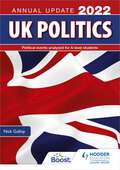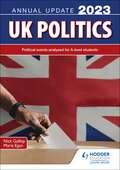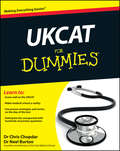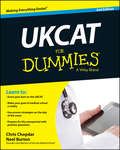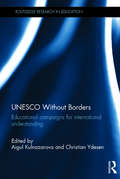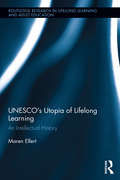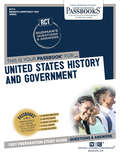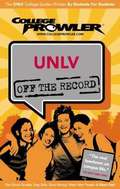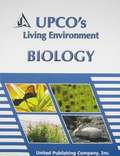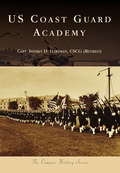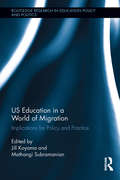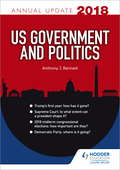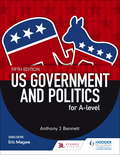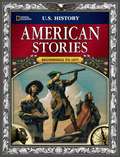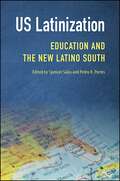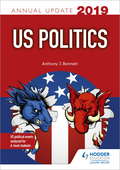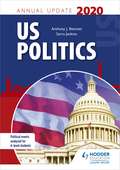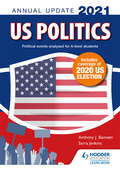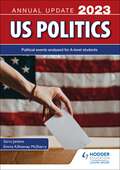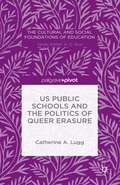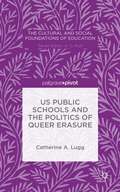- Table View
- List View
UK Politics Annual Update 2022
by Nick GallopThis UK Politics Annual Update will help students:- Review all the developments relevant to A-level specifications in UK politics from the last year, with examples linked closely to specification points, strong links between topics and focused suggestions for further reading- Develop their confidence with expert analysis they can draw on throughout their course and in the exams- Enhance their knowledge of the news to build a bank of up-to-date examples linked to the specifications, helping them to develop persuasive arguments for their essays- Learn more about the government's response to the COVID-19 pandemic and other up-to-date political developments, and how to put them into context- Use our updated exam skills feature to clarify how to use the information they have just learned in their examUK Politics Annual Update 2022 chapters:1. Pressure groups: Lobbying in the 2020s - methods and controversies2. Rights in context: Campaigns to protect liberties and to extend the franchise3. Political Parties: Old, new or in between? What does Keir Starmer's Labour Party stand for?4. The constitution: The Johnsonian constitution 'in flux' 5. Devolution (Part 1): See no EVEL: what is the future for English representation in Westminster?6. Devolution (Part 2): What does the government's 'levelling up' agenda mean for devolved government in England?7. Parliament and the executive: The changing relationship between Parliament and the executive8. The House of Lords: Peers in the 2020s: The composition and legislative influence of the House of Lords9. The UK Supreme Court: Redefining judicial power in the 2020s
UK Politics Annual Update 2023
by Nick Gallop Maria Egan- Review all the developments relevant to A-level specifications in UK politics from the last year, with strong links between topics and focused suggestions for further reading- Develop your confidence with expert analysis you can draw on both throughout your course and in the exams- Enhance your knowledge of the news to build a bank of up-to-date examples linked to the specifications, helping you to develop persuasive arguments for your essays- Use our updated exam skills feature to clarify how to use the information you have just learned in your exam Chapters:- Think tanks: how do they operate and why are they controversial? - Rights in context: do we need a British Bill of Rights? - Political parties: are the Liberal Democrats re-emerging as a political force? - Devolved and divided? The causes and consequences of Northern Ireland's election - The constitution: is the UK's uncodified constitution working? - Parliament and the prime minister: did parliament contribute to a prime minister's demise? - Prime minister and executive (1): Boris Johnson - Prime minister and executive (2): Liz Truss - Prime minister and executive (3): Rishi Sunak- The Supreme Court: the impact of legislative reform and Lord Reed's presidency
UK Politics Annual Update 2023
by Nick Gallop Maria Egan- Review all the developments relevant to A-level specifications in UK politics from the last year, with strong links between topics and focused suggestions for further reading- Develop your confidence with expert analysis you can draw on both throughout your course and in the exams- Enhance your knowledge of the news to build a bank of up-to-date examples linked to the specifications, helping you to develop persuasive arguments for your essays- Use our updated exam skills feature to clarify how to use the information you have just learned in your exam Chapters:- Think tanks: how do they operate and why are they controversial? - Rights in context: do we need a British Bill of Rights? - Political parties: are the Liberal Democrats re-emerging as a political force? - Devolved and divided? The causes and consequences of Northern Ireland's election - The constitution: is the UK's uncodified constitution working? - Parliament and the prime minister: did parliament contribute to a prime minister's demise? - Prime minister and executive (1): Boris Johnson - Prime minister and executive (2): Liz Truss - Prime minister and executive (3): Rishi Sunak- The Supreme Court: the impact of legislative reform and Lord Reed's presidency
UKCAT For Dummies
by Neel Burton Chris ChopdarFully updated to include the review materials and practice you need for the new Situational Judgment Test The expert advice, instruction, review and practice students need to score high on the UKCAT. If you're planning on applying to medical or dental school, the new edition of UKAT For Dummies provides a proven formula for success. It's packed with practice questions, in-depth answers, and strategies and tips for scoring well on each of the test sections, including the Situational Judgment Test and the new question types introduced for the Verbal Reasoning and Abstract Reasoning test sections.
UKCAT For Dummies
by Neel Burton Chris ChopdarFully updated to include the review materials and practice you need for the new Situational Judgment Test The expert advice, instruction, review and practice students need to score high on the UKCAT. If you’re planning on applying to medical or dental school, the new edition of UKAT For Dummies provides a proven formula for success. It’s packed with practice questions, in-depth answers, and strategies and tips for scoring well on each of the test sections, including the Situational Judgment Test and the new question types introduced for the Verbal Reasoning and Abstract Reasoning test sections.
UNESCO Without Borders: Educational campaigns for international understanding (Routledge Research in Education)
by Aigul Kulnazarova Christian YdesenThe United Nations Educational, Scientific, and Cultural Organization (UNESCO) was established in 1945 with twin aims: to rebuild various institutions of the world destroyed by war, and to promote international understanding and peaceful cooperation among nations. Based on empirical and historical research and with a particular focus on history teaching, international understanding and peace, UNESCO Without Borders offers a new research trajectory for understanding the roles played by UNESCO and other international organizations, as well as the effects of globalization on education. With fifteen chapters by authors from cross-disciplinary and diverse geographical areas, this book assesses the global implications and results of UNESCO’s educational policies and practices. It explores how UNESCO-approved guidelines of textbook revisions and peace initiatives were implemented in member-states, illustrating the existence of both national confrontations with the new worldview promoted by UNESCO, as well as the constraints of international cooperation. This book provides an insightful analysis of UNESCO’s past challenges and also indicates promising future research directions in support of international understanding for peace and cooperation. As such, it will be of key interest to researchers, postgraduate students, academics in the fields of international and comparative education, education politics and policies, and to those interested in the historical study of international organizations and their global impact. The book will also appeal to practitioners, especially those who conduct research on or work in post-conflict societies.
UNESCO’s Utopia of Lifelong Learning: An Intellectual History (Routledge Research in Lifelong Learning and Adult Education)
by Maren ElfertWith a focus on lifelong learning, this book examines the shifts that UNESCO’s educational concepts have undergone in reaction to historical pressures and dilemmas since the founding of the organization in 1945. The tensions between UNESCO’s humanistic worldview and the pressures placed on the organization have forced UNESCO to depart from its utopian vision of lifelong learning, while still claiming continuity. Elfert interprets the history of lifelong learning in UNESCO as part of a much bigger story of a struggle of ideologies between a humanistic-emancipatory and an economistic-technocratic worldview. With a close study of UNESCO’s two education flagship reports, the Faure and Delors reports, Elfert sheds light on the global impact of UNESCO’s professed humanistic goals and its shifting influence on lifelong learning around the world.
UNITED STATES HISTORY AND GOVERNMENT: Passbooks Study Guide (Regents Competency Test Series (RCT))
by National Learning CorporationThe Regents Competency Tests are designed to establish and maintain minimum standards for high school graduation. These, or equivalent comprehensive exams, must be passed in order for a student to earn a high school diploma. The RCT United States History and Government Passbook® includes hundreds of questions and answers similar to the ones found on your upcoming exam.
UNLV (College Prowler)
by Melissa Rothermel Marek BiernackiNo university affiliations. No half-truths. No out-of-touch authors who haven't been in school for decades. A class project turned company, College Prowler produces guidebooks that are written by actual college students and cover the things students really want to know. Unlike other guides that jam everything into a five-pound book and devote only two pages to each college, our single-school guidebooks give students only the schools they want and all the information they need. From academics and diversity to nightlife and sports, we let the students tell it how it is. In addition to editorial reviews and grades for 20 different topics, more than 80 percent of each guide is composed of actual student reviews of their school. Whether readers are looking for "Best and Worst" lists, "Did You Knows?" or traditions, College Prowler guides have it all. Our books are the only place for local slang, urban legends, and tips on the best places to find a date, study, or grab a bite to eat.
UPCO's Living Environment Review: Biology
by Lorraine GodlewskiUPCO'S Living Environment Review is a complete review of all the key ideas and major understandings as required by the New York State Living Environment Core Curriculum. Also included is any additional information necessary for total comprehension of core curriculum key ideas.
US Coast Guard Academy (Campus History)
by Jeffrey HartmanThe predecessor of the US Coast Guard (USCG) was the Revenue Marine, formed to enforce the customs laws. The officers for the service were drawn from the Merchant Marines, and occasionally the US Navy, and political connections were often more important than competency. To ensure consistent training, the original Revenue Cutter School of Instruction became the US Coast Guard Academy, moving to its present location in New London, Connecticut, in 1932. Prior to that, instruction had been afloat on four different vessels, known as cutters, and ashore in New Bedford, Massachusetts; Curtis Bay, Maryland; and Fort Trumbull in New London. The training has grown from a two-year program, providing primarily practical seamanship, to one of the highest ranked small engineering undergraduate schools in the nation, offering nine majors and graduating male and female officers with a liking for the sea and its lore.
US Education in a World of Migration: Implications for Policy and Practice (Routledge Research in Education Policy and Politics)
by Mathangi Subramanian Jill KoyamaGiven the protracted, varied, and geographically expansive changes in migration over time, it is difficult to establish an overarching theory that adequately analyzes the school experiences of immigrant youth in the United States. This volume extends the scholarly work on these experiences by exploring how immigrants carve out new identities, construct meanings, and negotiate spaces for themselves within social structures created or mediated by education policy and practice. It highlights immigrants that position themselves within global movements while experiencing the everyday effects of federal, state, and local education policy, a phenomenon referred to as glocal (global-local) or localized global phenomena. Chapter authors acknowledge and honor the agency that immigrants wield, and combine social theories and qualitative methods to empirically document the ways in which immigrants take active roles in enacting education policy. Surveying immigrants from China, Bangladesh, India, Haiti, Japan, Colombia, and Liberia, this volume offers a broad spectrum of immigrant experiences that problematize policy narratives that narrowly define notions of "immigrant," "citizenship," and "student."
US Government & Politics Annual Update 2018
by Anthony J BennettTopical reading essential for exam success.- Review all the key developments in US politics from the last year, with expert analysis you can draw on both throughout your course and in the exams- Go beyond your textbooks to build a bank of up-to-date examples and data, helping you develop knowledgeable and persuasive arguments- Know how to hit the highest grades with guidance from experienced teacher and author, Anthony J. BennettContentsChapter 1: The Trump cabinetChapter 2: To what extent can a President reshape the Supreme Court?Chapter 3: The Supreme Court: the 2016/2017 termChapter 4: The Gorsuch nomination to the Supreme CourtChapter 5: More from the 2016 electionsChapter 6: The 2018 midterm congressional electionsChapter 7: Where's the Democratic Party going?Chapter 8: Presidential pardonsChapter 9: An assessment of Trump's first year
US Government and Politics for A-level Fifth Edition
by Anthony J BennettLet trusted author Anthony Bennett build your students political knowledge and understanding with our bestselling textbook, fully updated for the new specifications. Combining informed discussion with the latest facts and figures, this textbook provides accessible coverage of key topics for all exam boards.- Comprehensive coverage of the latest developments in US politics including the 2016 elections- Analysis and evaluation of the similarities and differences to UK politics- Definitions of key terms and concepts to help clarify knowledge and understanding of political language- Exam focus sections at the end of each chapter to test and develop understanding of key topics, offering practice for short and essay questions
US History Shorts 2: Mid-1800s to the Present
by Kristina M. SwannHISTORY SHORTS are fun, "bite-sized" history lessons for students reading below grade level. These engaging programs were designed for students of all ages who need help learning the basic concepts covered in U.S. history and world history classes. The low reading level and age-appropriate illustrations make the short, high-interest passages and activities appealing to struggling readers and students with learning differences.
US History: American Stories, Beginnings to 1877
by National Geographic StaffThe history of the United States is a chronicle of different regions that today are pulled together on a cultural basis. In the early years, our identity as a nation was defined on a military or political basis-- and we're still struggling with those differences.
US Latinization: Education and the New Latino South
by Spencer Salas; Pedro R. PortesOffering a much-needed dialogue about Latino demographic change in the United States and its intersections with P–20 education, US Latinization provides discussions that help move beyond the outdated idea that Mexican and Spanish (language) are synonyms. This nativist logic has caused "Mexican rooms" to re-emerge in the form of English to Speakers of Other Languages (ESOL) transitional programs, tagging Latinos as "Limited English Proficient" in ways that contribute to persisting educational gaps. Spencer Salas and Petro R. Portes bring together voices that address the social and geographical nature of achievement and that serve as a theoretical or methodological resource for educational leaders and policy makers committed to access, equity, and educational excellence.
US Politics Annual Update 2019
by Anthony J Bennett-Review all the key developments in US politics from the last year, with expert analysis you can draw on both throughout your course and in the exams-Go beyond your textbooks to build a bank of up-to-date examples and data, helping you develop knowledgeable and persuasive arguments-Know how to hit the highest grades with guidance from experienced teacher and author, Anthony J. BennettChapters include:-The 2018 midterm elections-The Trump presidency after two years-The Brett Kavanaugh nomination-Where does power reside in Congress today?Anthony J. Bennett has taught, examined and written on US politics for many years. He is the author of US Government and Politics for A-level (now in its fifth edition) and is an editor of Politics Review.
US Politics Annual Update 2020
by Anthony J Bennett Sarra JenkinsTopical, up-to-date reading with close links to the specification, essential for exam success.This course companion offers you all the information, analysis and topical material you need to draw on for tasks throughout your course, and for answering examination questions.- Review all the developments relevant to A-level specifications in US politics from the last year, with examples linked closely to specification points- Develop your confidence with expert analysis you can draw on both throughout your course and in the exams- Enhance your knowledge to build a bank of up-to-date examples linked to the specifications, helping you to develop persuasive arguments for your essays- Learn to hit the highest grades with guidance from Anthony J Bennett and experienced author, teacher and examiner Sarra Jenkins.Chapters include coverage on:- The Trump administration in 2019- The journey to the 2020 elections- The Supreme Court 2018-19- The Mueller Report
US Politics Annual Update 2021
by Anthony J Bennett Sarra JenkinsYou can use this Annual Update for tasks throughout your course and for help with examination questions.- Review all the relevant developments in US politics from the last year, with examples linked closely to A-level specification points- Develop your confidence with expert analysis you can draw on both throughout your course and in the exams- Enhance your knowledge to build a bank of up-to-date examples linked to the specifications, helping you to develop persuasive arguments for your essays- Research up-to-date political topics like the 2020 US Presidential elections and the government response to the COVID-19 pandemic- Make connections between the latest developments and the political context of the US, with our focused links between the topic, the context and the exam contentUS Update 2021 - Table of Contents1. US election - primaries 2. US election - campaigns 3. US election - the result 4. Supreme Court 5. Covid-19 and presidential power6. Civil Rights: Race and Voting Rights in the US7. Congress: Hyper-partisanship: is it effective?8. Constitution - is it out-dated?
US Politics Annual Update 2021
by Anthony J Bennett Sarra JenkinsYou can use this Annual Update for tasks throughout your course and for help with examination questions.- Review all the relevant developments in US politics from the last year, with examples linked closely to A-level specification points- Develop your confidence with expert analysis you can draw on both throughout your course and in the exams- Enhance your knowledge to build a bank of up-to-date examples linked to the specifications, helping you to develop persuasive arguments for your essays- Research up-to-date political topics like the 2020 US Presidential elections and the government response to the COVID-19 pandemic- Make connections between the latest developments and the political context of the US, with our focused links between the topic, the context and the exam contentUS Update 2021 - Table of Contents1. US election - primaries 2. US election - campaigns 3. US election - the result 4. Supreme Court 5. Covid-19 and presidential power6. Civil Rights: Race and Voting Rights in the US7. Congress: Hyper-partisanship: is it effective?8. Constitution - is it out-dated?
US Politics Annual Update 2023
by Sarra Jenkins Emma Kilheeney McSherry- Review all the developments relevant to A-level specifications in US politics from the last year, with strong links between topics and focused suggestions for further reading- Develop your confidence with expert analysis you can draw on both throughout your course and in the exams- Enhance your knowledge of the news to build a bank of up-to-date examples linked to the specifications, helping you to develop persuasive arguments for your essays- Use our updated exam skills feature to clarify how to use the information you have just learned in your exam Chapters:- The January 6 Committee - 'The legislative branch': does Congress fulfil its legislative role adequately?- 'I control foreign policy': has the president retained primacy? - The Supreme Court 2021-22: has Chief Justice Roberts lost control of his Court? - Abortion in the USA
US Politics Annual Update 2023
by Sarra Jenkins Emma Kilheeney McSherry- Review all the developments relevant to A-level specifications in US politics from the last year, with strong links between topics and focused suggestions for further reading- Develop your confidence with expert analysis you can draw on both throughout your course and in the exams- Enhance your knowledge of the news to build a bank of up-to-date examples linked to the specifications, helping you to develop persuasive arguments for your essays- Use our updated exam skills feature to clarify how to use the information you have just learned in your exam Chapters:- The January 6 Committee - 'The legislative branch': does Congress fulfil its legislative role adequately?- 'I control foreign policy': has the president retained primacy? - The Supreme Court 2021-22: has Chief Justice Roberts lost control of his Court? - Abortion in the USA
US Public Schools and the Politics of Queer Erasure: The Politics And History Of The Child Protective Rationale (The Cultural and Social Foundations of Education)
by C. LuggThis book presents a history of queer erasure in the US public school system, from the 1920s up until today. By focusing on specific events as well as the context in which they occurred, Lugg presents a way forward in improving school policies for both queer youth and queer adults.
US Public Schools and the Politics of Queer Erasure: The Politics and History of the Child Protective Rationale (The Cultural and Social Foundations of Education)
by Catherine A. LuggUS Public Schools and the Politics of Queer Erasure.
